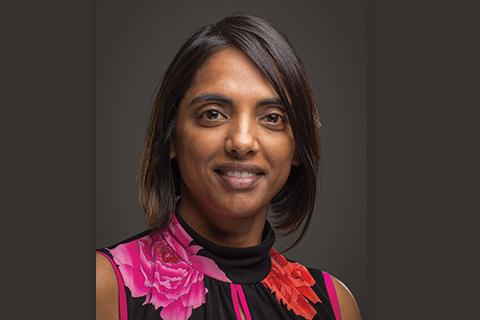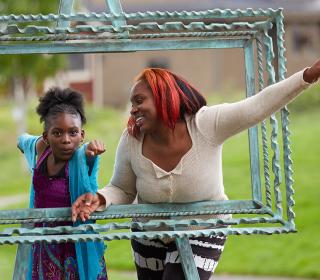Dr. Shireesha Dhanireddy's work is grounded in research on improving HIV care through patient engagement and adherence i.e. ensuring patients correctly follow medical advice.
In anticipation of Stella Steps Out, our annual fundraiser in support of YWCA's BABES Network, I asked Dr. Dhanireddy some questions about support systems and accessibility for women living with HIV. As director of the Madison Clinic, the largest HIV clinic in the Pacific Northwest, Dr. Dhanireddy oversees care for over 2800 people living with HIV and is this year's 2018 Stella Steps Out Honoree.
Below Dr. Dhanireddy provides an overview of the difference between HIV and AIDS and explains the impact of social and racial disparities for women living with HIV.
What is the difference between HIV and AIDS?
HIV is a virus. AIDS is the clinical syndrome that describes more advanced immunosuppression or illness that results from the virus. Despite AIDS having a negative connotation, it is important to note that people with AIDS can still become healthy with treatment and no longer be ill or have advanced immunosuppression.
What does Washington state do well in term of HIV and STI treatment compared to other states?
We do have more comprehensive coverage of trans-health services, HIV and STI treatment, and prevention services. We see immigration into WA state by sexual minorities for this reason.

What gaps exist in HIV treatment and how can we overcome the hurdles of treating women living with HIV?
There are still pockets of hard to reach individuals as evidenced by the recent cluster of HIV cases in North Seattle. These are heterosexual, unhoused individuals with substance use disorder, some of whom engage in transactional sex. Public health interventions such as more robust needle exchange access in that area as well as medical care for HIV/STI prevention is needed for these vulnerable individuals.
What social problems contribute to women accessing resources and health care services to assist in coping with the disease?
The biggest is stigma. So many women I’ve seen in the clinic over the years feel that they are alone. This is why YWCA BABES Network is such an important organization. Other barriers to care include mental health issues and substance use disorder.
Why does HIV increasingly affect African-American women?
For some in the African-American community, distrust in the healthcare industry stems from poor historical or personal experiences which can lead to a lack of engagement or retention in care. Having culturally competent providers and staff who can connect with communities of color is important to reaching this population.

What role does stigma play in the mental health of a woman living with HIV?
A huge role. Stigma can lead to isolation and worsening depression. As an example, one of my patients attended Stella Steps Out two years ago. She had never told anyone about her HIV except her husband. She felt alone and had such a negative view of herself and her self-worth. She came to the event and was so inspired by the women who were positive and proud of themselves. She cried tears of happiness as she was welcomed and accepted by the women of BABES.

What are some ways we can improve HIV care?
On a national level, we need more providers who are competent and knowledgeable about HIV and HIV primary care. As individuals with HIV are living longer and mortality decreases, we need to adapt to the changing demographics of the population. HIV is not a death sentence and people can have long healthy lives, have long-term partners/spouses without fear of transmitting the virus, and have children.
We need to not only treat HIV while minimizing side effects/long-term toxicities of medications, but we also need to focus on preventative care (i.e., cancer screening, controlling blood pressure, and cholesterol) just as we would with any aging individual. Of equal importance, organizations that support individuals with HIV and combat stigma continue to be essential.

Salma Siddick is the Social Media & Content Manager at YWCA Seattle | King | Snohomish. An immigrant from Zimbabwe, Salma has lived, worked, and attended school on three continents.
We share the stories of our program participants, programs, and staff, as well as news about the agency and what’s happening in our King and Snohomish community.

